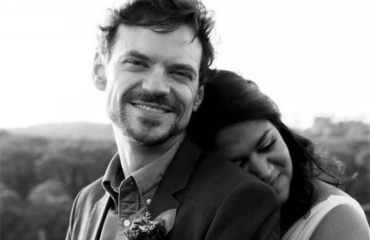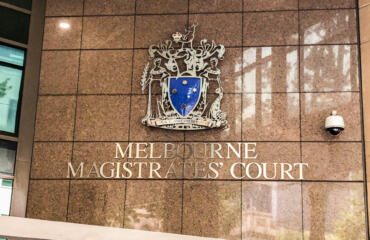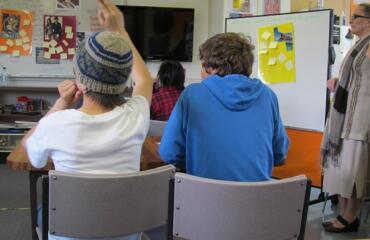
Winners of the Young Indigenous Writer’s Prize will be offered a three-to-six-month residency at the historic Trinity College in Parkville, plus $5000 in prize money.
The inaugural 2014 prize will be awarded to an unpublished work of poetry, with the honours to then alternate annually between poetry and short fiction. The winning entry will be published in the literary journal Overland.
Melbourne poet Peter Gebhardt, a Trinity alumnus and former county court judge and school principal, approached the college with the idea.
“I wanted to reach out into the community, because some Aboriginal students think the walls are a bit high around the place,” he said.
With its emphasis on recognising the work of young Indigenous writers exclusively, the Trinity prize is the first of its kind in Victoria. It joins the biennial Victorian Premier’s literary award, as well as Queensland’s black&write! fellowships and David Unaipon Award, as among the top accolades for Indigenous writing.
The Dean of Trinity College, Campbell Bairstow, said the prize complemented Trinity’s ongoing commitment to Indigenous education.
The aim is to provide the winner of the award – named after two former Aboriginal students, Sana Nakata and Lilly Brophy – with an opportunity to focus on their writing, according to Mr Bairstow.
But there would also be an opportunity to run workshops and participate in some of Trinity’s established programs as its writer-in-residence, he said.
Some of these programs had been developed to supplement the college’s Indigenous scholarships program, founded in 2001, of which Mr Gebhardt was an active supporter.
“I just think that it’s good for the private institutions to be seen to be supporting the public world,” Mr Gebhardt said.
Trinity hosts a Young Leaders’ Summer School for Indigenous high school students and has designed special undergraduate degrees in partnership with the University of Melbourne and the Murrup Barack Indigenous Centre.
The college also regularly invites artists and writers to stay on campus to raise awareness of Indigenous issues and provide academic and cultural support for its resident students.
“We’ve had visiting artists and visiting writers,” said Kay Attali, of the college’s advancement office. “We have ties with the Yolngu people in Arnhem Land, in particular the Marika family. The women elders of that community come down once or twice a year and stay as scholars in residence.”
“We noticed that the students coming through who had community here did better than those that didn’t,” she added.
The editor of Overland, Jeff Sparrow, said the Trinity prize was a first for the journal to be associated with.
“We were very keen to support this type of initiative — to encourage Indigenous writers — given that Australian literature is still overwhelmingly White,” he said.
“We’ve worked with writers from various backgrounds, writers from non-English speaking backgrounds, writers from a Queer background. This sort of thing is Overland’s commitment.”
The judges of the inaugural prize will be Trinity’s head of acaedmic programs, Sally Dalton-Brown, Overland poetry editor Peter Minter and the writer and academic Tony Birch.



